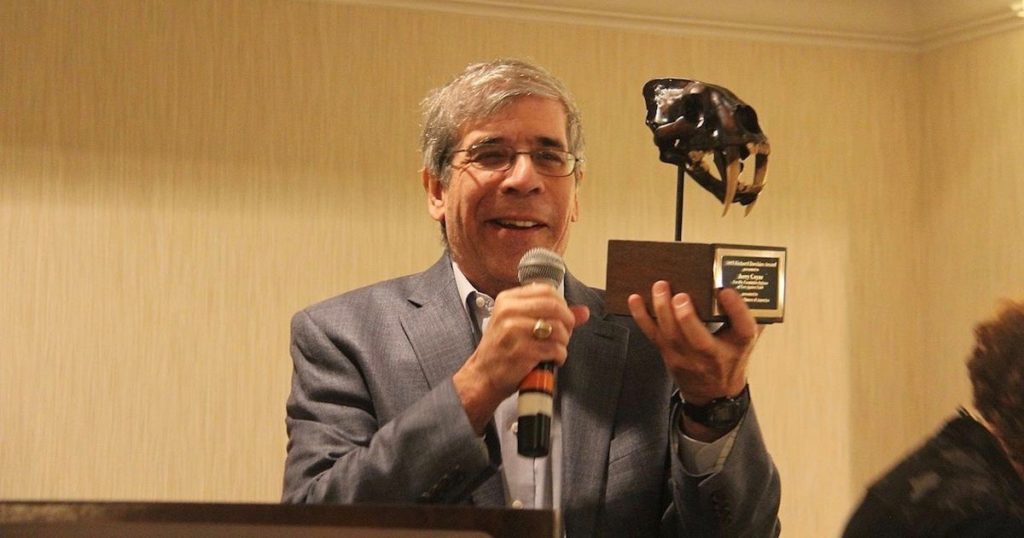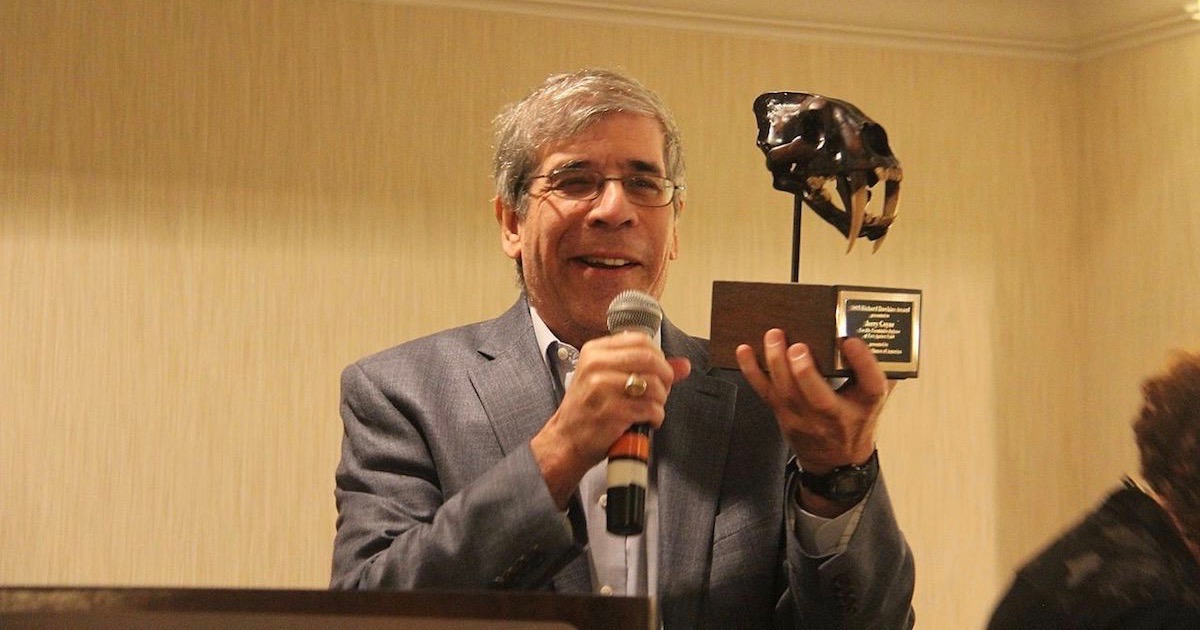 Faith & Science
Faith & Science
Jerry Coyne Asks a Good Question


Evolutionist Jerry Coyne is quoted in an 2019 Evolution News post as asking:
Seriously, if God wants us to accept Him, why can’t he just come down to Earth and do a few irrefutable miracles that can be witnessed, photographed, and so on?
It is a legitimate question, and one that most everyone who believes in God has wondered about.
Is God Really Good?
In the final chapter “Is God Really Good?” of my 2015 book In the Beginning and Other Essays on Intelligent Design, which was called an Epilogue to clearly set this theological essay apart from the scientific chapters, I also asked:
Why does God remain backstage, hidden from view, working behind the scenes while we act out our parts in the human drama? This question has lurked just below the surface throughout much of this book, and now perhaps we finally have an answer.
On the one hand, the evidence for design, especially in living things, is so clear and obvious that I would agree with Jay Homnick that “once you allow the intellect to consider that an elaborate organism with trillions of microscopic interactive components can be an accident…you have essentially ‘lost your mind.’” There is zero scientific evidence for the idea that natural selection can explain any of the major steps of evolution. So you could argue that anyone who could imagine that the human brain, with its human consciousness, came about through entirely unintelligent processes would find a way to reject design even if God did go on the late show to perform miracles.
Frustrated and Wonder
Still, when we argue with atheists like Jerry Coyne, we may become frustrated and wonder why God didn’t just create all species simultaneously 10,000 years ago as some creationists believe, and make doubt impossible. Actually, the history of life on Earth is very similar to the history of human technology: we also design things step-by-step, through testing and improvements. In fact, as I show in the second part of my new video, the similarities between the history of life and the history of human technology actually extend far beyond this. So if the history of life looks like the way humans, the only other known intelligent beings in the universe, design things, why is this widely considered as evidence against design? Because God “wouldn’t” do things like we do, of course!
But even if you believe that God has to create through testing and improvements for the same reasons we do, and that just because something is designed doesn’t mean it can never go wrong (which addresses the main question in my Epilogue, why do bad things happen to good people), we still have to think that God has intentionally passed up a lot of opportunities to end the debate about his existence and silence all doubters.
If we could find a reasonable, plausible answer to Coyne’s question, it might make ID far more popular, because while the scientific evidence for design is powerful, and stronger every day, Darwin frequently used “God wouldn’t do things this way” as an argument against design in his Origin of Species. And opposition today is still fueled in large part by the theological questions “Why would God…” or “Why wouldn’t God…” Of course speculation as to why God would or would not do something is theology, not science, so we can never be sure if our speculation is correct or not. But ID opponents engage in a lot of theological speculation. So why can’t we?
A Possible Answer
As the above quote from my Epilogue suggests, I think I have a possible reasonable answer, and I propose it at the very end of that essay, which was also reproduced here at Evolution News, and which also appears as the last chapter of my 2016 book Christianity for Doubters, now downloadable.
My proposal simply involves thinking about how life might change, and what we might lose, if we could see God looking down over our shoulders all the time. But I hope you will not go directly to the end of the essay, because I think you may only find my answer reasonable if you read the entire essay. Of course, it is just speculation, and I am not even sure myself if my answer is correct. But you may possibly consider it reasonable, after you have read the entire essay.
Photo: Jerry Coyne, by Atheist Alliance America [CC BY-SA 4.0], via Wikimedia Commons.
